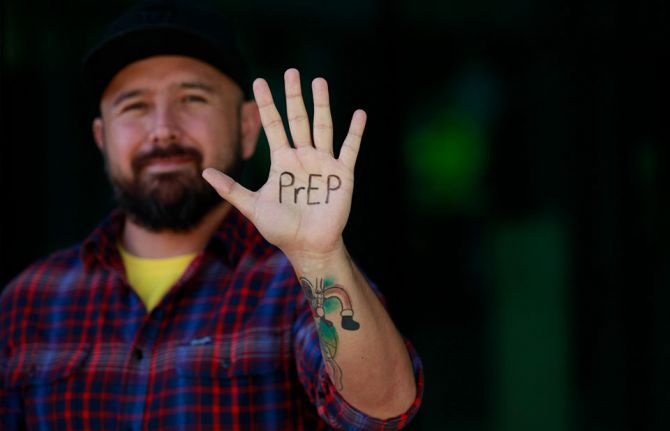

Feature Story
Call for minimum standards of PrEP provision and monitoring in Europe
27 November 2018
27 November 2018 27 November 2018Pre-exposure prophylaxis (PrEP) is highly effective at preventing HIV infection when it is taken correctly—once a day during times when the likelihood of becoming infected with HIV is very high, or, for gay men and other men who have sex with men, before and after sexual activity, so-called event-driven PrEP.
Several western cities that offer PrEP have seen a drop in the number of diagnoses of HIV among gay men and other men who have sex with men, but overall PrEP access and uptake in Europe is not yet sufficient to affect the course of the HIV epidemic.
How to improve the delivery of PrEP was the subject of a two-day meeting in Stockholm, Sweden, held on 15 and 16 November entitled Pre-Exposure Prophylaxis in the EU/EEA: PrEP Service Delivery and Monitoring: Minimum Standards and Key Principles. Representatives of 22 European countries joined together with PrEP users and community HIV advocates to seek ways to strengthen the provision and monitoring of PrEP.
Gay men and other men who have sex with men are the most affected by HIV in Europe. PrEP users in Europe are almost all gay men and other men who have sex with men, but the vast majority do not have formal access to PrEP. Consequently, among those taking PrEP, many access it online and take it with no medical support and monitoring.
PrEP is pre-exposure prophylaxis—the use of antiretroviral medicines to prevent HIV among people who are HIV-negative.
The meeting heard how the offer of PrEP in friendly and accessible settings can attract people to HIV testing and for diagnosis and treatment of other sexually transmitted infections. Taking PrEP provision out of highly specialized centres, in consultation with communities of potential PrEP users, provides a gateway to broader health care. Innovative online approaches to improve PrEP self-management and sexually transmitted infection diagnosis and treatment were presented.
Maturing European PrEP programmes are leading on ways to achieve the equitable and rapid scale-up of PrEP that is needed for there to be an impact on the HIV epidemic. Decentralization of PrEP provision and integration with broader health services often has to be achieved without an increase in funding. Service providers are therefore looking for guidance on minimum safe standards for PrEP provision.
PrEP users and PrEP providers agreed that the patterns of PrEP use are evolving, with no clear distinction between daily and event-driven PrEP. Factors such as the ability to afford the next PrEP refill, and improved identification of times when there will be a high chance of acquiring HIV, are increasingly determining how PrEP is being taken. Incorrect PrEP taking can result in people becoming infected with HIV or lead to the development of resistance to the PrEP medicines. Therefore, the meeting participants called for guidelines on how to effectively stop and start PrEP and the HIV testing regimens to follow for this type of non-daily PrEP use to be safe.
Three actions were identified during the meeting. A consultation paper will be developed on essential and desirable components and principles of a decentralized PrEP programme, including safe non-daily use. A technical review of standardized monitoring will be drafted by the World Health Organization and the European Centre for Disease Prevention and Control. And all meeting attendees are being asked to give what details they can on pricing of PrEP medicines to governments and consumers, which will be shared between European HIV programmes in order to strengthen price negotiations.
UNAIDS is working with countries to ensure that the commitment in the 2016 United Nations Political Declaration on Ending AIDS to reach 3 million people with PrEP by 2020 is met.



